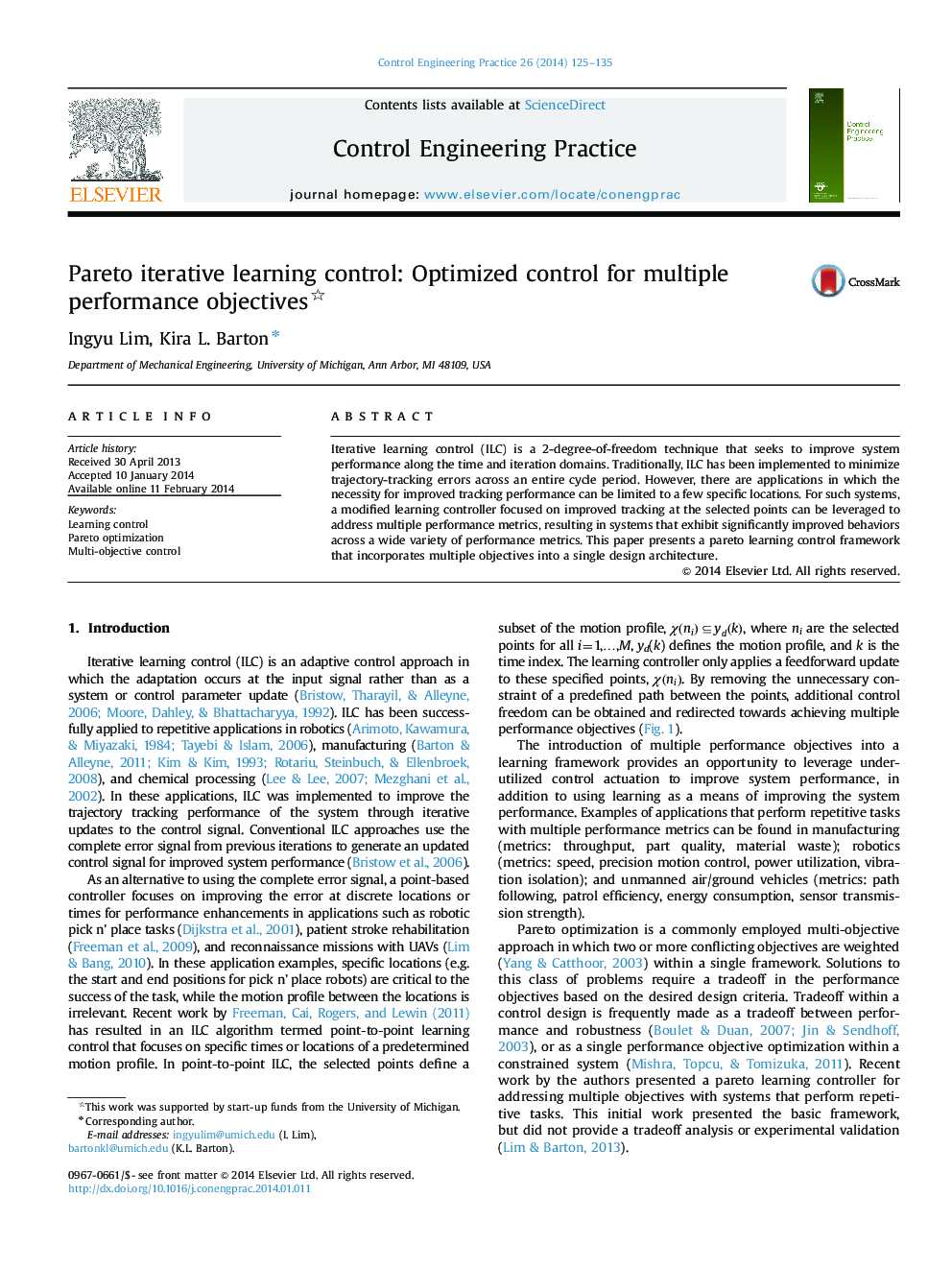| کد مقاله | کد نشریه | سال انتشار | مقاله انگلیسی | نسخه تمام متن |
|---|---|---|---|---|
| 699511 | 1460720 | 2014 | 11 صفحه PDF | دانلود رایگان |
• Development of a generalized, multi-objective learning control framework.
• Output stability proof and cost function convergence analysis.
• Trade-off analysis of tracking and energy use identified a performance plateau.
• A detailed design approach based on trade-off analysis.
• Experimental testing validated convergence and performance of control framework.
Iterative learning control (ILC) is a 2-degree-of-freedom technique that seeks to improve system performance along the time and iteration domains. Traditionally, ILC has been implemented to minimize trajectory-tracking errors across an entire cycle period. However, there are applications in which the necessity for improved tracking performance can be limited to a few specific locations. For such systems, a modified learning controller focused on improved tracking at the selected points can be leveraged to address multiple performance metrics, resulting in systems that exhibit significantly improved behaviors across a wide variety of performance metrics. This paper presents a pareto learning control framework that incorporates multiple objectives into a single design architecture.
Journal: Control Engineering Practice - Volume 26, May 2014, Pages 125–135
